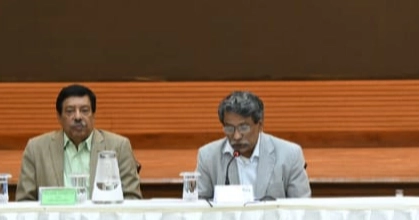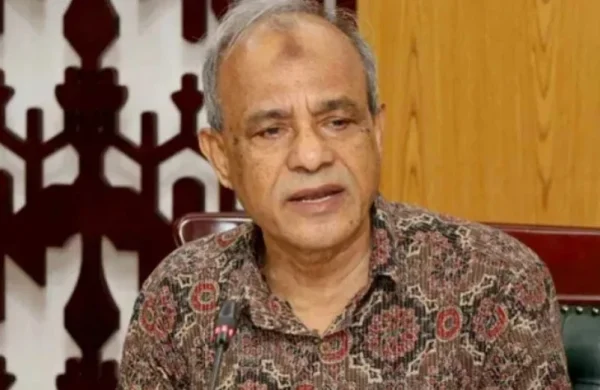Govt to amend public service law for swift dismissal of unruly civil servants
- Update Time : Tuesday, May 20, 2025

Staff Correspondent:
The government is set to bring changes to the Government Service Act-2018, allowing the public administration ministry to directly dismiss civil servants for negligence or misconduct, bypassing lengthy departmental proceedings.
As per the proposed amendments, such allegations must be resolved within 25 working days of being raised, according to officials from the Ministry of Public Administration.
They said the final draft of the amended law has been prepared. The revisions are designed to ensure greater discipline and accountability, as well as to fast-track actions while avoiding bureaucratic delays.
A senior official said they are aiming to introduce a swift and structured disciplinary framework. “The law will prevent misuse of power, internal disorder, and ensure that civil servants remain focused on service delivery.
The move comes in the wake of recent unrest within the bureaucracy, particularly after the fall of the Awami League government on 5 August last year. The current administration believes that several civil servants engaged in indiscipline during the transitional period.
Reports surfaced of a group of officers allegedly besieging the public administration secretary to secure postings, promotions, and transfers. Administrative and other cadre groups reportedly clashed, with one faction boycotting work and trading indecent comments online.
Amid such developments, the government decided to curb any future possibility of collective action, protest rallies, strikes, or sit-ins by civil servants. The amendment seeks to deter such activities by introducing provisions that define such acts as misconduct.
In response, the government has moved to prohibit collective action – including protest rallies, sit-ins, and strikes – by defining such behaviour as misconduct under the revised law.
DEPARTMENTAL CASE CAN TAKE 5 YEARS
Currently, civil servants accused of wrongdoing face a departmental case that follows a lengthy process: a show-cause notice, investigation by an inquiry officer or committee, submission of a report, and finally, a decision by the ministry. Officers also have the right to appeal.
This process can drag on for years – sometimes up to five – due to administrative bottlenecks and procedural delays. Officials say the new legal route will enable faster resolution in clear-cut cases.
NEW PROCESS INTRODUCES FIXED TIMELINE
Under the proposed provisions, if a civil servant is accused of negligence, they must reply within seven working days of receiving a notice. The case must be resolved within 20 to 25 working days after the response is filed. If there is no reply, the process will begin from the eighth day.
Civil servants found guilty can still appeal to the President.
The amendment also treats any attempt to organise or incite protests, strikes, or collective actions as punishable misconduct. Persuading colleagues to join such actions will also be deemed an offence.
Employees who remain absent without leave will be served a show-cause notice. Failure to justify the absence could lead to termination.
The legal reform process has so far remained confidential. The draft was not circulated for public feedback, in contrast to standard practice.
ADVISERS BROUGHT IN AFTER CRITICISM
The initial draft, prepared in April, drew criticism when it was leaked due to the lack of stakeholder consultation. It was tabled before the Advisory Council but sent back for review.
Four advisers were later brought in: Ali Imam Majumder (Food), Asif Nazrul (Legal), Syeda Rizwana Hasan (Environment), and Adilur Rahman Khan (Housing).
On 16 May, Cabinet Secretary Sheikh Abdur Rashid and Public Administration Secretary Md Mokhlesur Rahman met with the advisers to discuss revisions.
Their written feedback informed the updated draft, now sent to the Cabinet Division for final clearance.
1979 Ordinance Influence New Law
The revised law draws inspiration from the now-defunct Public Servants (Special Provisions) Ordinance, 1979, enacted under Ziaur Rahman.
That ordinance had listed offences like inciting disobedience, absence without approval, and failure to perform duties, with penalties including dismissal, suspension, or salary cuts.
The ordinance was annulled through the Fifteenth Amendment, leading to the Public Service Act 2018. The current draft builds on the spirit of the 1979 ordinance without reviving it entirely.
In March, the Public Security Division under the Ministry of Home Affairs recommended reinstating the 1979 ordinance, citing growing disobedience and psychological unrest in the bureaucracy. It warned this was weakening governance and law enforcement.
However, the Advisory Council rejected the proposal, arguing that the law was outdated. It backed reforming the 2018 Act instead to preserve discipline without damaging morale.
















